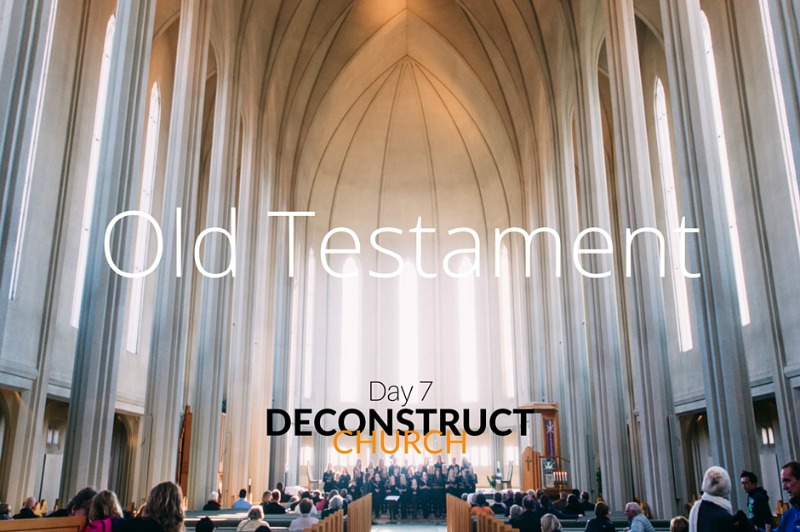Let me begin by saying that I shy away from the term “Old Testament”. Yes, I’m one of those people.
My concern with the name (and its companion, the New Testament) is not that they aren’t PC enough. It is that they are too narrowly prescriptive and restrict the beauty and depth of our scripture. It creates a binary of relationship: old to new: and restricts their place to a testimony. As I spoke to earlier, our scripture is more than a story, it is a unifier and a builder. It is something to be experienced and shared.
With that disclaimer out of the way, let’s determine what makes this part of our Holy Scripture so significant.
[bctt tweet=”‘How might the Hebrew Scripture come alive for the church?’” nofollow=”yes”]
Most of us are probably aware that the Old Testament is bigger than the New. It takes up twice as much real estate and has more, and different books and genre types than the New. Genres which range from Story to history to poetry to wisdom literature to prophetic. Each of these genres is dramatically different and represents completely different needs, character, and context.
It was written almost entirely in Hebrew and is often referred to as the Hebrew Scriptures or the Hebrew Bible. It’s earliest writing is more than 3,000 years old, but most of what we receive was written and heavily edited during or shortly after the Exile, in the 6th Century BCE: some 500+ years before Jesus.
The diversity of genres, telling a story, the bulk of which spans a little more than 1,000 years makes it a vast and epic scale. There is slavery and breaking free; fights and deception; blessing and disappointment. But it is a montage / collection / anthology of stories which gather to tell a great big story, but only if we don’t play cut and paste with it.
The modern condition trained us to seek absolute, singular truth. We were taught to not concern ourselves with perspective, but to determine what is demonstrably factual and actual. But these writings predate that methodology by, oh, two thousand years. And more importantly, the vast majority of our tradition predates that methodology.
However, if we simply reject that methodology, we become the proverbial fool hoping the genie will just will itself back into the bottle. If we adopt the modernist methodology exclusively, we are bound to manipulate and shrink the text in ways we won’t even recognize we are doing.
What we have is different stories about different things written by different people at different times. And instead of needing to place them all in a strict timeline and squish them all so they’ll fit, let’s read them for what they attempt to capture. Then we can best determine how all these different stories combine to share one much bigger, more fascinating whole story. A story that seems all the more true because of those rough edges and contours many long to sand away.
And what is that story? A story of love and loneliness, hope and freedom, opportunity and rejection; a story of a petulant people and a faithful GOD. And sometimes a faithful people and an apparently petulant GOD. But a story of sharing a story, our story, like a family history, told around campfires and late at night to generations who rather talk about current events or middle school drama. But maybe they’ll pick it up. Maybe. Before the parents die, leaving only questions, half-truths, and if-onlys.
Ask Yourself
What part does our Hebrew Scripture play in the church? How comfortable are we with it as ours? How comfortable are we with sharing it with our Hebrew friends? What steps do we take to make sure we are being respectful with our shared Scripture?
Do we ever preach from the Old Testament, or is it primarily the gospel?
How do we speak of the Old Testament, refer to it, characterize it? What are our thoughts about it? Is it
- Law – legalistic
- Prophetic
- Old
- Replaced
- Jewish
- Angry / Spiteful GOD
- The Ten Commandments and that’s about it
- Children’s Bible Stories (what percentage of which are from Genesis?)
Do we hear the persistent story of redemption? Or the constant presence of GOD with the people? Do we see the mercy and the calls for a holy community?
And do we recognize that this was Jesus’s primary text? Deep down, in our bones recognize. Can we see it? Can we see his compassion and concern for the stranger as much in Jesus’s teaching as in the story of Lot or in the admonition of Isaiah?
How does it play into worship: into our gatherings and in our prayers? From singing the psalms to exploring the prophetic witness, perhaps?
How might the Hebrew Scripture come alive for the church? How can it feel youthful and vital?
[This is Day 7 of How to start deconstructing church. The next in the series is “New Testament”. To start from the beginning, read the introduction here.]


Leave a Reply